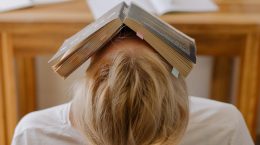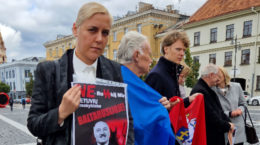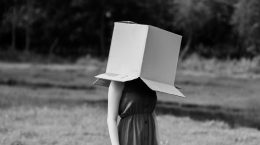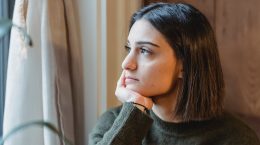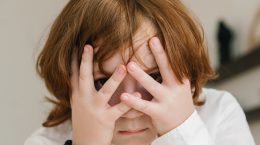On September 1, Belarus celebrates the Day of Knowledge and the beginning of a new academic year. On August 24, Lukashenko announced a “complete reboot” of the education system. However, this will not affect academic subjects and programs, the issue of exams, the approximation of Belarusian education to the European model. Schools offer to promote state policy, “restore order” by any means, force children to spend six days a week here. Meanwhile, the state turns a blind eye to the real problems.
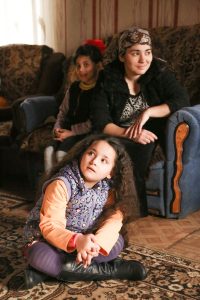 And there are problems. There are still children in Belarus who are not covered by secondary education. About 30% of Gypsies over the age of 10 do not know how to read and write. In 2017, the Belarusian organization “Social Initiatives” conducted a study and found out that Roma children often lag behind their classmates, adopting the standards of life of illiterate parents. As a result, they lose interest in studying, drop out of school. Girls become mothers early and do not return to school anymore. The reason is the biased attitude towards Gypsies in schools, in the police, at work. Families have to move in search of work-hence the absences from school, the inability to get an education continuously.
And there are problems. There are still children in Belarus who are not covered by secondary education. About 30% of Gypsies over the age of 10 do not know how to read and write. In 2017, the Belarusian organization “Social Initiatives” conducted a study and found out that Roma children often lag behind their classmates, adopting the standards of life of illiterate parents. As a result, they lose interest in studying, drop out of school. Girls become mothers early and do not return to school anymore. The reason is the biased attitude towards Gypsies in schools, in the police, at work. Families have to move in search of work-hence the absences from school, the inability to get an education continuously.
 But it is not only Gypsies who are deprived of education. If a child is seriously ill or disabled from birth, he also risks being left without a certificate of maturity. Brothers Bogdan and Matvey Yanochkin from Gomel were able to study only a few classes – spinal muscular atrophy did not allow them to continue education. Or teachers and schools did not want to take responsibility for children with disabilities? The fact remains: 21-year-old Bogdan graduated from seven classes, his younger brother, 19-year-old Matvey – four classes.
But it is not only Gypsies who are deprived of education. If a child is seriously ill or disabled from birth, he also risks being left without a certificate of maturity. Brothers Bogdan and Matvey Yanochkin from Gomel were able to study only a few classes – spinal muscular atrophy did not allow them to continue education. Or teachers and schools did not want to take responsibility for children with disabilities? The fact remains: 21-year-old Bogdan graduated from seven classes, his younger brother, 19-year-old Matvey – four classes.
There was no place in education for children with autism either. In 2016, the mother of a child with autism, Elena, learned that her son could not go to school in his native Bobruisk. Doctors diagnosed the boy with “mental retardation”, although he knew the alphabet and wrote numbers. At the consultations, they openly said: “Schools are not ready for such a child.” The city authorities considered autism a curiosity, and they did not want to bother: they needed to hire teachers and tutors who would accompany the child, equip a comfortable classroom that meets the characteristics and needs of the student. For two years, Elena tried to ensure that the government violates her son’s right to education. In addition, there was another girl with autism. For the new class, the parents even ordered and assembled the furniture themselves. The children had tutors who accompanied them to the cafeteria and along the school corridors.
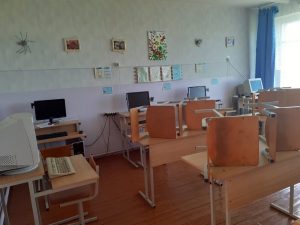 The education of village children is simply taken away from them. One by one, small rural schools are being closed in small settlements. In June 2021, it became known about the school in the agro-town of Androny, Vitebsk region. The school is only 30 years old, and it is one of the newest in the Postavy district. In 2008, repairs were here, a modern computer class, a sports hall, and labour training workshops appeared. There were 41 children enrolled in the school. But the authorities decided to close it, explaining: the number of pupils has decreased, there is no prospect – 16 children from 0 to 5 years old live in the microdistrict, the classes are small. Therefore, children are offered to study in Postavy – and this is 18 kilometres. If there is a preschooler and a schoolboy in the family, and the parents work in the village, they will have to drive more than 70 kilometres a day by car.
The education of village children is simply taken away from them. One by one, small rural schools are being closed in small settlements. In June 2021, it became known about the school in the agro-town of Androny, Vitebsk region. The school is only 30 years old, and it is one of the newest in the Postavy district. In 2008, repairs were here, a modern computer class, a sports hall, and labour training workshops appeared. There were 41 children enrolled in the school. But the authorities decided to close it, explaining: the number of pupils has decreased, there is no prospect – 16 children from 0 to 5 years old live in the microdistrict, the classes are small. Therefore, children are offered to study in Postavy – and this is 18 kilometres. If there is a preschooler and a schoolboy in the family, and the parents work in the village, they will have to drive more than 70 kilometres a day by car.
During the first wave of the coronavirus pandemic, the Belarusian authorities spoke out against the transfer of schoolchildren to distance learning. Children who would not go to school were threatened not to be certified for the academic year, even if they studied at home independently and sent completed tasks to teachers. Because in the Code on education, there were no words about online education for schoolchildren. So, the officials concluded, it is impossible. Children were also forbidden to wear masks and use antiseptics, thereby exposing their health to danger.
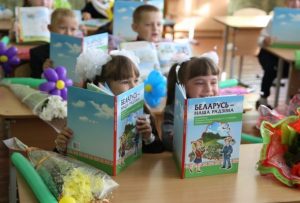 From year to year, the authorities violate the right to receive education in Belarusian. According to the latest census, more than 60% of Belarusians consider it their native language. Last academic year, only 10.2% of schoolchildren studied in Belarusian. Most of them are residents of villages. In many regional cities and large district centres, there is no opportunity to receive education in Belarusian. And in the countryside, schools are closing one after another. In the Kamenets district, there is only one Belarusian–speaking school – in the village of Omelenets. In 2020, more than 50 children studied here, and then they decided to close the school – they consider it does not meet sanitary standards. Physical education teacher Pavel Kendys organized a petition in which he said: the school’s pupils have repeatedly won the Olympiads in the Belarusian language, history, and intellectual games. Thanks to the activity of the teacher, the school worked one more academic year. However, in the spring of 2021, a final decision was made – to close the institution and transfer the children to a Russian-speaking new school in the village of Pogranichnaya, 18 kilometres away.
From year to year, the authorities violate the right to receive education in Belarusian. According to the latest census, more than 60% of Belarusians consider it their native language. Last academic year, only 10.2% of schoolchildren studied in Belarusian. Most of them are residents of villages. In many regional cities and large district centres, there is no opportunity to receive education in Belarusian. And in the countryside, schools are closing one after another. In the Kamenets district, there is only one Belarusian–speaking school – in the village of Omelenets. In 2020, more than 50 children studied here, and then they decided to close the school – they consider it does not meet sanitary standards. Physical education teacher Pavel Kendys organized a petition in which he said: the school’s pupils have repeatedly won the Olympiads in the Belarusian language, history, and intellectual games. Thanks to the activity of the teacher, the school worked one more academic year. However, in the spring of 2021, a final decision was made – to close the institution and transfer the children to a Russian-speaking new school in the village of Pogranichnaya, 18 kilometres away.
The local authorities believe that the school is being closed due to a lack of completeness. But in a new school, pupils will study in Russian. The chairman of the district executive committee, Valentin Zaichuk, said: “The point here is not in what language they will speak — Belarusian, Russian or Chinese. The main thing in the communication, developing, living and studying in normal conditions. There are not many Belarusian-speaking schools, but what can we do? It is the fate of this school. Do they teach somewhere in universities in the Belarusian language? The fact is that when applicants go to study at universities, they are still being converted to Russian in their first year there.”
There are not many districts with an opportunity to study in Belarusian, even on the map. In the Vitebsk region, for example, there are only two: Shumilino and Gorodok districts. According to officials, no people are willing to study in Belarusian in the regional centre of Vitebsk, the ancient cultural city of Polotsk. In the Grodno region, there are Belarusian schools in Lida, Zelva, Berestovitsa, Korelichy and Oshmyany districts. Brest students also do not have access to Belarusian – language education-it is available to children from Pinsk, Pruzhany, Kamenets (only up to grade 9) and Stolin districts. The statistics for the Stolin area are the most encouraging: 37 out of 45 schools are Belarusian–speaking. In the Gomel region, children from six districts can study in Belarusian. But there is no such opportunity in Gomel itself. Eight areas in the Mogilev region have Belarusian schools – and there are no Belarusian classes in Mogilev. In the Minsk region, children study in Belarusian in seven districts, and Minsk – in 5 schools out of 250 schools.
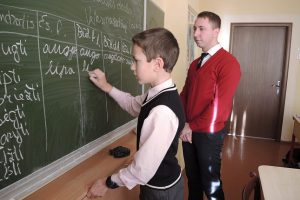 Children of the Polish and Lithuanian diasporas in Belarus face the inability to study minority languages. In March 2021, the illegitimate government began to massively close Polish schools. And in 2020/2021, Grodno school No. 36 with the Polish language of instruction begins to switch to the Belarusian language. There are only two schools with the Lithuanian language of instruction in Belarus: in the village of Pelesa in the Voronovo district and the village of Rymdyuny in the Ostrovets district – and according to official data, there are more than 5 thousand Lithuanians in the country. In addition to the Grodno school, Polish is also taught by children in Volkovysk. And there are almost 300 thousand Poles in Belarus. Representatives of the Ukrainian diaspora cannot study in their native language – and there are up to 500 thousand of them in Belarus, most of all in the Gomel and Brest regions. Approximately 160,000 Ukrainians moved to Belarus after the conflict in eastern Ukraine began. Children had to go to schools with the Russian language of instruction. If their parents found work in villages near Belarusian-speaking schools, then the children (sometimes high school pupils) learned the Belarusian language from scratch and had to pass final exams on it.
Children of the Polish and Lithuanian diasporas in Belarus face the inability to study minority languages. In March 2021, the illegitimate government began to massively close Polish schools. And in 2020/2021, Grodno school No. 36 with the Polish language of instruction begins to switch to the Belarusian language. There are only two schools with the Lithuanian language of instruction in Belarus: in the village of Pelesa in the Voronovo district and the village of Rymdyuny in the Ostrovets district – and according to official data, there are more than 5 thousand Lithuanians in the country. In addition to the Grodno school, Polish is also taught by children in Volkovysk. And there are almost 300 thousand Poles in Belarus. Representatives of the Ukrainian diaspora cannot study in their native language – and there are up to 500 thousand of them in Belarus, most of all in the Gomel and Brest regions. Approximately 160,000 Ukrainians moved to Belarus after the conflict in eastern Ukraine began. Children had to go to schools with the Russian language of instruction. If their parents found work in villages near Belarusian-speaking schools, then the children (sometimes high school pupils) learned the Belarusian language from scratch and had to pass final exams on it.
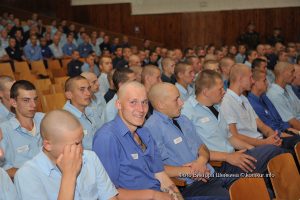 Perhaps the most deprived category of education is underage prisoners. After the 2020 protests, at least three schoolchildren found themselves in a pre-trial detention centre without the opportunity to continue their studies and pass final exams. Although even with the status of suspects and accused, they remained children. According to the Constitution of Belarus and the UN Convention, every child has the right to education. But there was such a problem before – children convicted under Article 328 of the Criminal Code for minor drug-related offences remained without certificates in 2016-2018. For example, Grigory Korotkevich, who was detained under Article 328 of the Criminal Code, had only a 9-class education and studied at a college. After being detained, he was unable to continue his studies. Prisoners cannot finish school – after all, they do not take exams in the pre-trial detention centre. They cannot pass the centralized testing and then get a higher education. The only such opportunity in prisons disappeared in 2020.
Perhaps the most deprived category of education is underage prisoners. After the 2020 protests, at least three schoolchildren found themselves in a pre-trial detention centre without the opportunity to continue their studies and pass final exams. Although even with the status of suspects and accused, they remained children. According to the Constitution of Belarus and the UN Convention, every child has the right to education. But there was such a problem before – children convicted under Article 328 of the Criminal Code for minor drug-related offences remained without certificates in 2016-2018. For example, Grigory Korotkevich, who was detained under Article 328 of the Criminal Code, had only a 9-class education and studied at a college. After being detained, he was unable to continue his studies. Prisoners cannot finish school – after all, they do not take exams in the pre-trial detention centre. They cannot pass the centralized testing and then get a higher education. The only such opportunity in prisons disappeared in 2020.
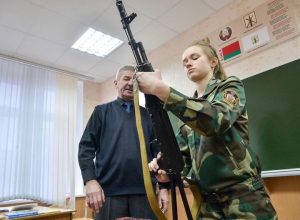 How easy is it for little Belarusians to study at school? Maybe the subjects themselves are simple for modern children. The Belarusian school is engaged not only in teaching but also in ideological education. From 2021, heads of military-patriotic education will work with pupils. They will conduct classes on pre-conscription and medical training, thematic competitions, field training camps, excursions to military-historical places. We have studied the vacancies of military instructors in schools: they can earn from 700 to 2000 rubles. Specialists are required to ensure the implementation of the ideology of the Belarusian state in the field of military security in the “educational institution”. Experience working with children is often not required, but experience in military service is mandatory.
How easy is it for little Belarusians to study at school? Maybe the subjects themselves are simple for modern children. The Belarusian school is engaged not only in teaching but also in ideological education. From 2021, heads of military-patriotic education will work with pupils. They will conduct classes on pre-conscription and medical training, thematic competitions, field training camps, excursions to military-historical places. We have studied the vacancies of military instructors in schools: they can earn from 700 to 2000 rubles. Specialists are required to ensure the implementation of the ideology of the Belarusian state in the field of military security in the “educational institution”. Experience working with children is often not required, but experience in military service is mandatory.
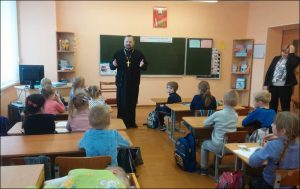 And the children will also have an elective “Fundamentals of spiritual and moral culture and patriotism”. Students will study according to the textbook “Spirituality and Patriotism”, issued by the Orthodox Church. At the same time, the Catholic religion dominates in the western regions of Belarus, and there are probably representatives of other faiths among the country’s schoolchildren. It turns out that the school imposes religion on children, without even asking permission from their parents.
And the children will also have an elective “Fundamentals of spiritual and moral culture and patriotism”. Students will study according to the textbook “Spirituality and Patriotism”, issued by the Orthodox Church. At the same time, the Catholic religion dominates in the western regions of Belarus, and there are probably representatives of other faiths among the country’s schoolchildren. It turns out that the school imposes religion on children, without even asking permission from their parents.
However, parents will no longer be able to influence the educational process: from September 1, they can’t appear in schools, it will be almost impossible to meet the teacher in person. Video surveillance cameras and security officers from the Ministry of Internal Affairs Security Department will protect children and keep order. But the state will interfere in the educational process as it sees fit because Lukashenka ordered to restore order in the school by any means – in other words, to turn the temple of knowledge into an island of stability.
After August 2020, many parents decided to transfer their children to private schools, rightly considering that teachers who rigged the elections will not teach young Belarusians anything good. The percentage of private schools in Belarus is diminutive – about 1%. However, they may soon disappear as well. Parents will lose the choice of which school to send their child to: private or public, and little Belarusians will have to study religion and learn to love the regime without fail.
“Now, due to the lack of licensing, anyone can register a kindergarten or a school. It is possible without a proper material and technical base and even without teachers. It is enough to apply, bring the charter and a document on the payment of the state fee, – said the Minister of Education Igor Karpenko at the republican pedagogical Council. – Semi-legal private kindergartens and schools under the guise of individual entrepreneurs, public or religious associations were used for political purposes, became reference points for the colour revolution. And their employees and managers ended up in destructive organizations of different levels.”
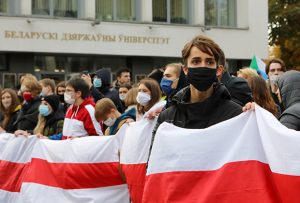 There are problems not only in Belarusian schools but also in universities. On October 16, 2020, the authorities announced that students who missed 10 hours of classes without a valid reason would be deprived of scholarships for a month. At the same time, skipping lectures or seminars due to administrative arrest was not considered. More than 140 students were expelled from universities because they spoke out against the Lukashenka regime. At least 27 students are in prison with the status of political prisoners. The pressure was exerted on the teachers who supported the students. At least 19 of them were serving administrative arrest. As a result, this year, Belarusian universities did not get 937 students on the budget. Many of our students preferred to enrol abroad.
There are problems not only in Belarusian schools but also in universities. On October 16, 2020, the authorities announced that students who missed 10 hours of classes without a valid reason would be deprived of scholarships for a month. At the same time, skipping lectures or seminars due to administrative arrest was not considered. More than 140 students were expelled from universities because they spoke out against the Lukashenka regime. At least 27 students are in prison with the status of political prisoners. The pressure was exerted on the teachers who supported the students. At least 19 of them were serving administrative arrest. As a result, this year, Belarusian universities did not get 937 students on the budget. Many of our students preferred to enrol abroad.
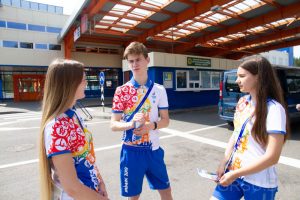 Young people are forced to go to other countries to study at universities. It is almost impossible for a Belarusian student to get consent to undergo an internship abroad during school hours, participate in a student exchange abroad, or pass a session ahead of schedule to go to a volunteer program in another country. At the same time, the university gives permission to skip training sessions and sessions if the student works for the benefit of the fascist regime. Moreover, the administration personally forces young men and women to help farms in villages, volunteer at sports contests, state cultural events, participate in competitions like a ski race or a half marathon under the auspices of ministries and departments, go hiking. No one cares if a student can not endure physical exertion for health reasons. One of the last major events in the country – the II European Games – brought together tens of thousands of volunteer students from universities.
Young people are forced to go to other countries to study at universities. It is almost impossible for a Belarusian student to get consent to undergo an internship abroad during school hours, participate in a student exchange abroad, or pass a session ahead of schedule to go to a volunteer program in another country. At the same time, the university gives permission to skip training sessions and sessions if the student works for the benefit of the fascist regime. Moreover, the administration personally forces young men and women to help farms in villages, volunteer at sports contests, state cultural events, participate in competitions like a ski race or a half marathon under the auspices of ministries and departments, go hiking. No one cares if a student can not endure physical exertion for health reasons. One of the last major events in the country – the II European Games – brought together tens of thousands of volunteer students from universities.
“At the beginning of the second semester, we, first-year students, were offered to become volunteers of the II European Games,” one of the girls recalls. – They said that it is so important, we will be part of the Games, we will get a beautiful uniform of good quality, worth $ 500. Then there was a meeting for those who are just going to be volunteers. They said that the entire university would finish its studies earlier, there will be more couples per week. They promised that the volunteers would have no problems with the session and study – they would pass all the exams ahead of schedule. The teachers had promised to raise their grades on the exam for volunteering.”
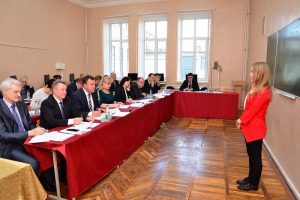 Another reason not to study in Belarus is the mandatory work after university for students who studied at the expense of the budget. In other words, a person needs to pay for education with slave labour, often for low wages in remote cities and villages. Young specialists who do not want to work out must pay the state 10 to 20 thousand dollars. Orphans and pregnant women will be exempt from paying. Everyone else, even people with disabilities and seriously ill, should be given a new place of working out. A free diploma – the opportunity not to work for the state after university – is practically not issued. 99% of university and college graduates are distributed in Belarus.
Another reason not to study in Belarus is the mandatory work after university for students who studied at the expense of the budget. In other words, a person needs to pay for education with slave labour, often for low wages in remote cities and villages. Young specialists who do not want to work out must pay the state 10 to 20 thousand dollars. Orphans and pregnant women will be exempt from paying. Everyone else, even people with disabilities and seriously ill, should be given a new place of working out. A free diploma – the opportunity not to work for the state after university – is practically not issued. 99% of university and college graduates are distributed in Belarus.
Note that this practice was widespread in the USSR. The state does not plan to abandon it – for officials, distribution is a way to “close” primarily financially unattractive vacancies. After two years, the young specialist will be replaced by another one. In a word, as in historical times: one peasant leaves the master, and another takes his place.
Perhaps, one material is too little to reveal all the problems of Belarusian education. We have already written about many of them in previous materials, and many more have yet to be told. We are glad that they are seen at the international level – a whole section was devoted to education in the recent report of the UN Special Rapporteur on Belarus Anais Marin. Belarusian education aims at creating a slave who adores power and works for a bowl of soup. But we believe that after the victory over the Lukashenka regime, we will be able to create the best conditions for Belarusian schoolchildren and students. They would be happy to go to their alma mater, learn the world or their chosen profession with interest. They could develop their fantasy and creativeness while doing homework. After all, the future life of the country and every person depends on the school and the university.


